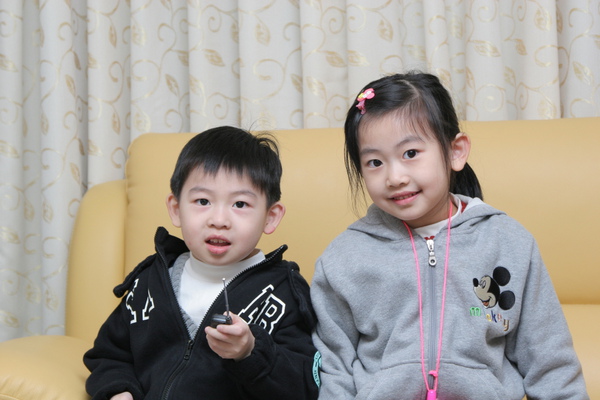長久以來, 我只知道社區規定的事就要照辦,也從不去質疑那是誰做的規定. 對於社區的開會,鮮少出席(因為自家的瑣事就已經忙不完了). 直到自己被抽籤成了管委會的安全委員…
其實當了管委會的安全委員,我也不是很清楚這份無給職的權力跟義務. 詢問起其他住戶或管理員,大家也是懵懵懂懂. 我只知道既然管委會要求我出席開會,我就會很認真地去和大家開會. 也很慎重地提出自己的意見和傾聽別人的意見.
由於新店市即將在12月份開始,如台北市一樣執行垃圾分類. 所以管委會早在11月份之前就陸陸續續招開了四,五次會議,並且就此議題做討論. 直到昨天,新上任的總幹事發給全社區一份問卷,內容選項如下:
1. 各住戶自行購買環保專用垃圾袋,確實做好垃圾分類,於環保局垃圾車抵達社區時段,自行丟置車內.
2. 垃圾可無需分類,仍依往例由清潔人員挨戶收取,交由民間環保垃圾車代為丟棄,惟每戶每月需付約100元之清潔費用.
當時看到這種問卷,我的第一個反應是,這並不是管委會數次開會討論的結果呀! 而且這樣一來,不就是鼓勵大家不要做垃圾分類嗎? 因為願意做垃圾分類的人就要被處罰,得自己去追垃圾車(目前是清潔人員會到你家門口收取垃圾). 而不願意做垃圾分類的人,只要每月多付100元左右的費用,就可以一切照舊.
這跟你去買豆漿時,老闆問你: “加一顆蛋還是兩顆蛋?”時,你很自然地回答: “一顆就好”. 而你卻忘了,其實你要買的是 “不加蛋”的豆漿.
當我詢問總幹事製做問卷的事時,他才跟我解釋,這是主委的意思,他也想把在台北市任職時的環保經驗帶來我們的社區,但…
晚上問卷回覆結果總計有3戶願意確實做好垃圾分類,而有43戶選擇花錢了事, 有27戶沒有填問卷.
我不經自問,那幹麻花那麼多時間開會討論啊? 政府請大家確實做好垃圾分類,是為了保護我們的地球,為了減少垃圾量,為了讓資源再生(德國,日本,瑞士,加拿大,芬蘭,紐西蘭…等等先進國家都已經這麼做了). 而不是為了花錢了事,不是為了減少清潔人員的工作量,更不是為了找誰的麻煩或是增加誰的負擔.
新店市才剛開始推廣垃圾分類,我們社區連試都還沒試,便選擇相信"一定有住戶不守法,會害大家吃罰單". 所以90%安靜而又守規矩的住戶,便該積極主動想盡辦法要為不守規矩的住戶擦屁股? 以免日後麻煩.
而我認為新法令剛開始執行,一定有違規者(所以政府才有所謂的“宣導期”).對於因不知情或不習慣而違規的人,管理員該當面勸導或書面通知住戶該如何改進,而不是視他為壞人. 對於故意耍賴,屢勸不聽的違規者,管理員應依管委會制訂之懲處方式,確實執行.
只可惜目前管委會尚無白紙黑字明確的垃圾處理法則,也尚未製訂違規者之懲處方式,而垃圾處理法則以及違規者之懲處方式,理當由全體住戶表決通過,不是嗎?
看看下列文章,連外國人都對台灣的垃圾分類和環保方式感到讚許,而我們社區呢?實在該好好檢討.
What I Picked Up About Trash in Taipei
By Julia Ross
Sunday, December 2, 2007
When I planned for my year in Taiwan two summers ago, trash was the last thing on my mind. The more obvious challenges of moving abroad -- finding an apartment, buying a cellphone and navigating the bus system -- preoccupied me in the weeks before my departure. I worried most about studying Mandarin full-time, the difficulty of mastering the language's four tones and the intricate arcs, fishhooks and grids that make up written Chinese.
But strange things happen when you cross cultures. Unexpected frustrations vex you, and habits ingrained over years suddenly come up for negotiation. So it was for me and waste disposal.
On this leaf-shaped island of 23 million people 100 miles off China 's coast, trash matters. My Taipei landlady was the first to make that point, when she gave me a crash course on how to dispose of household waste like a local. First, buy city-approved trash bags at the corner 7-Eleven. Then, meet the garbage truck five nights a week at the mouth of a nearby alley. Finally, heave the bags onto the truck yourself.
You'll recognize the truck, she said, because it plays music -- a tinny version of the Beethoven classic "F¿r Elise," as I soon discovered.
With help from the melodic warning, I figured out where and when to show up. Understanding the mandatory recycling system was more troublesome. In Taiwan , recycling trucks tag along behind trash collectors, but they accept only certain items on certain nights. According to the strictly enforced schedule, plastic bottles must be separated from plastic wrapping and bags, and flat recyclables, such as Styrofoam trays and cardboard dumpling boxes, are collected only on Mondays and Fridays. Show up with bundled newspapers on the wrong night, and you'll get an earful from the sanitation worker. Feigning ignorance of Mandarin won't absolve you, either.
Waiting for the garbage truck is one of Taiwan 's liveliest communal rites. Many evenings I watched food vendors from the night markets, buckets of eggshells in hand, chat up convenience store clerks alongside Filipina nannies who traded kitchen appliances as if they were at a Sunday morning swap meet. Freelance recyclers keen to make a few dollars showed up to collect cardboard and newspapers, which they would sell back to the city. An alderman with a whistle kept traffic at bay.
These curbside jaunts were my initiation into Taiwan 's broader waste-disposal network, made up of municipal employees and regular citizens all doing their part to keep the system humming. Watching the city's disparate trash tribes at work shamed me into compliance after years as a half-hearted recycler back home. I even came to feel a peculiar solidarity with the "ladies with tongs," the city transit and university sanitation workers who spend their days sifting through garbage bins in subway stations and on university campuses in search of aluminum cans. And I admired the swift vigilance of food court employees as they swept fast-food wrappers and Styrofoam cups off my table into shallow baskets before I had time to look for a trash can. (There aren't any.)
Then you have nosy landlords, who, depending on the housing arrangement, are sometimes tasked with sorting their tenants' trash. One American friend, upon surrendering several bags of refuse soon after he moved into a studio apartment in Taipei , was dumbfounded when his landlady scolded him for eating too many candy bars and not enough fruit. Humiliated, he bought a bag of oranges the next day, hoping she would notice the peels he planned to leave on top of the pile.
Taiwanese friends tell me that 10 years ago, their capital's sidewalks were drowning in rotting garbage. You'd never know it today, thanks to the introduction of a per-bag trash-collection fee to discourage consumption, a charge for plastic bags at supermarkets and the rigorous recycling policy now in effect. These changes created an infinitely cleaner city. Even more impressive, they fueled a sense of civic responsibility in a place where democracy is still taking root. Just as the Taiwanese invest in their young representative government, they invest in a clean environment. There's a palpable appreciation for hard-won progress.
Back in the United States , green awareness has seemingly taken a quantum leap in the past year, with talk of carbon offsets -- a term I hadn't heard when I boarded my plane for Taipei -- lacing the passenger conversations on long-haul flights. But I've been home for three months now, and U.S. consumption patterns look as robust as ever, with the same limited patchwork of recycling opportunities available. Reducing your "carbon footprint" is a hip way to fight global warming, but what about the trash generated by last night's takeout?
Before my year in Taiwan , I was a lazy environmentalist, dutifully recycling wine bottles and newspapers and opting for paper over plastic, but never willing to go the extra mile if it wasn't convenient. It's no longer so easy to make excuses. Living in a place where I was expected to use what I bought and recycle every last yogurt cup and juice box left me with a new appreciation for what clean streets mean in a civil society, and the realization that I'm responsible for everything I consume. That's as good a Chinese lesson as any.





 留言列表
留言列表


